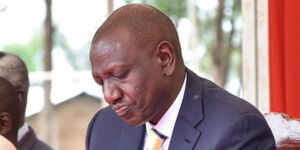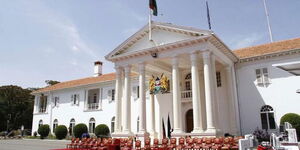Members of Parliament (MPs) will now be forced to take an anti-graft pledge as soon as they are sworn in.
The pledge will be in writing and will act as a commitment towards an ethical performance of their duties.
The MPs will have to sign a document swearing not to take bribes or be unduly influenced in their course of duty.
The letter was addressed to all those individuals awaiting swearing in and induction.
Speaking to the Nation, National Assembly Clerk Michael Sialai noted that the EACC is involved in this new guide that seeks to ensure that State Officers and civil servants behave ethically.
"The EACC has written to us, saying as soon as they are sworn in, they must sign that document.
"We are preparing for that and there will be a period after they are sworn in within which they will sign the document,” Mr Sialai said.
Parliamentarians will now be required to adhere to the code of conduct provided in the Public Officers Act.
Alternatively, the lawmakers could use the code of conduct provided by the EACC.
The Code of Conduct stipulates that the legislators, both in the National Assembly and the Senate adhere to seven general principles.
The principles are selfishness, integrity, objectivity, accountability, openness, honesty and leadership.
In regard to the issue of bribery, the lawmakers are not supposed to be rewarded for their duties or be paid for giving pieces of advice or service on parliamentary matters.
The released guide requires the legislators to register with the speaker all the interests that may influence their jobs.
In the past, the MPs have been known to ignore the role of the Independent Salaries and Remuneration Commission by increasing their own salaries.
However, in July, SRC announced that it will be adjusting the pay structure for all the national and county government officials.












